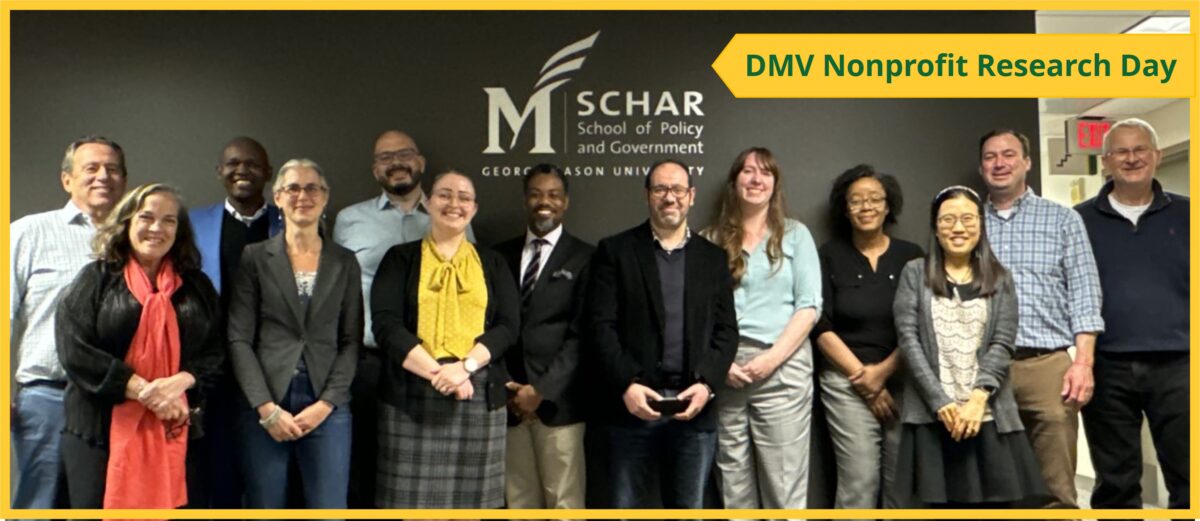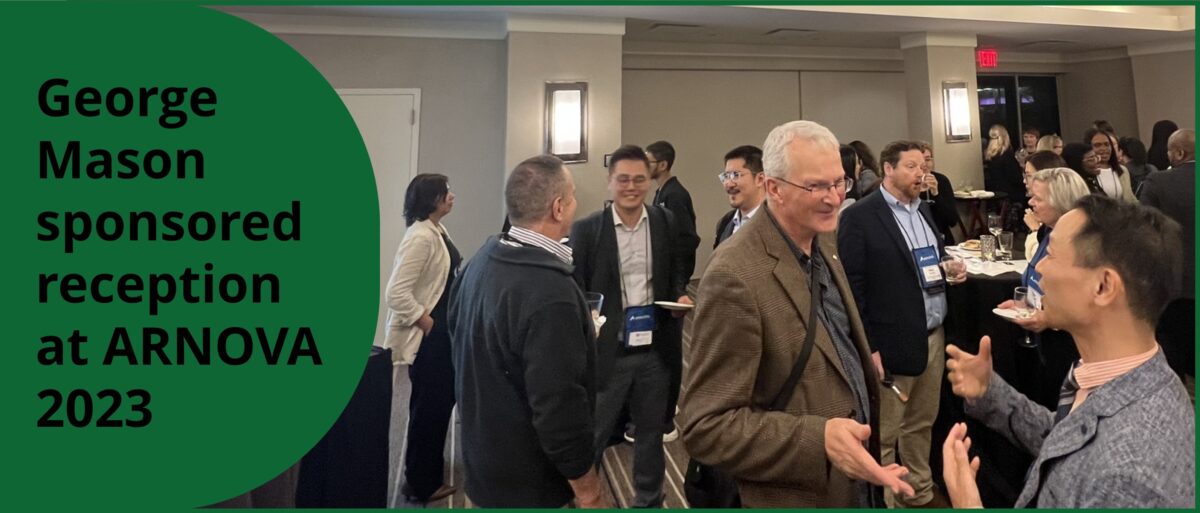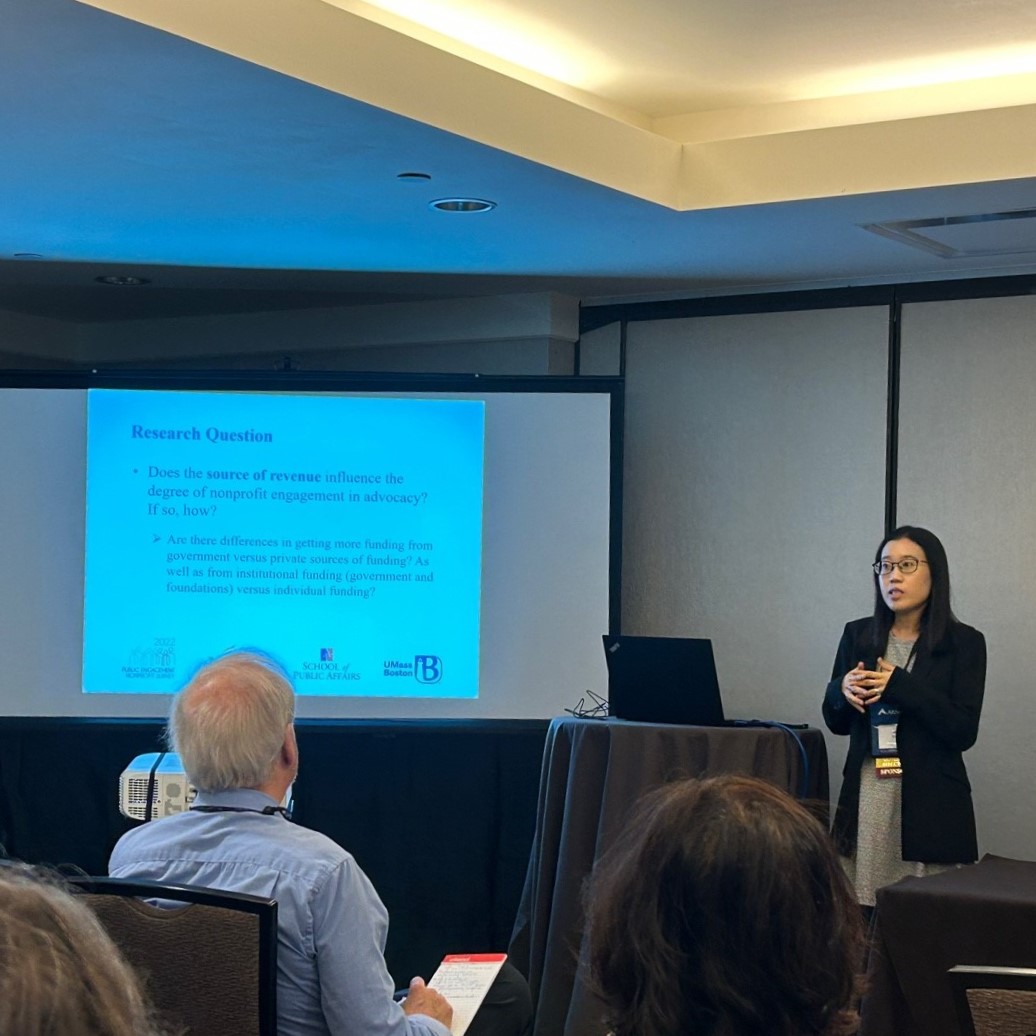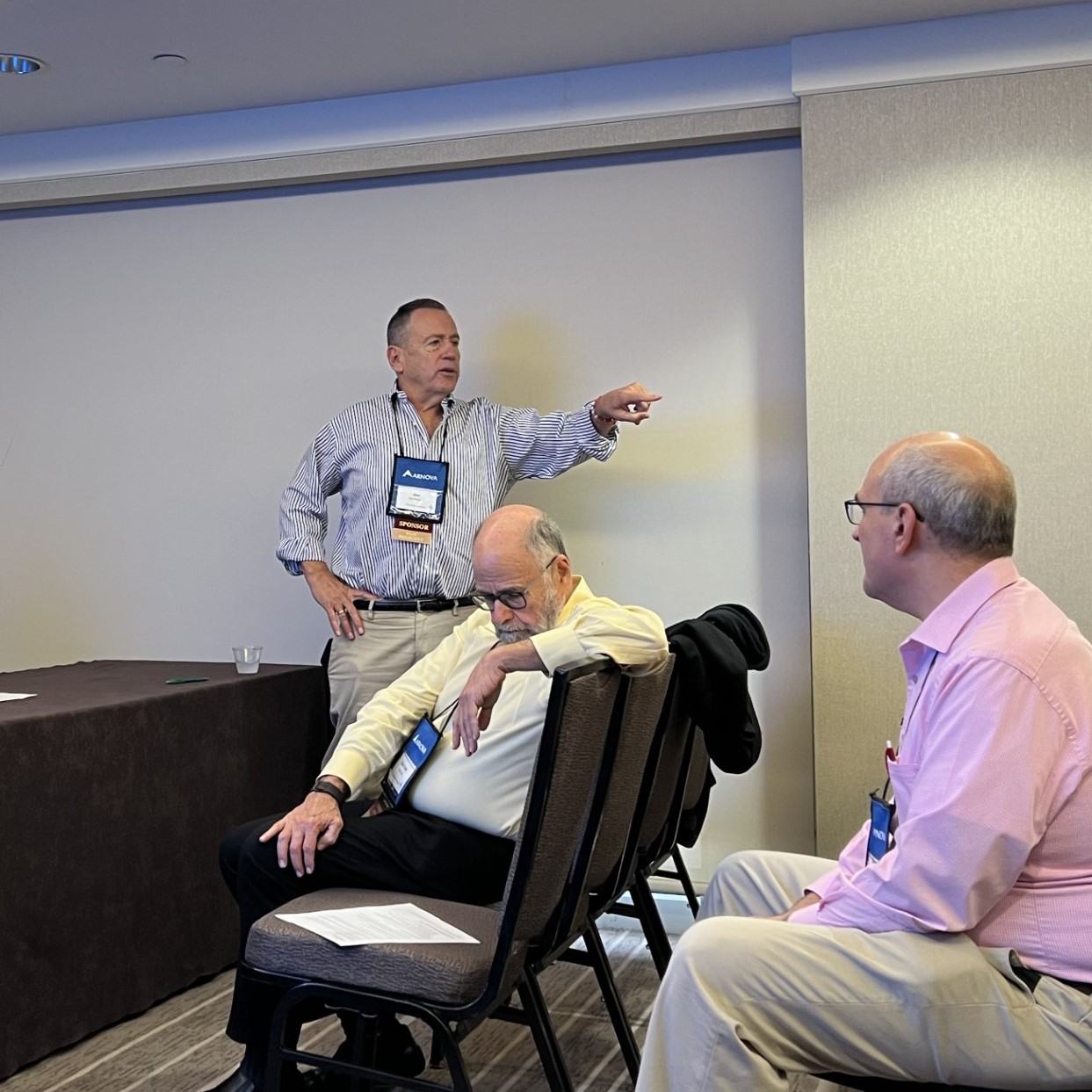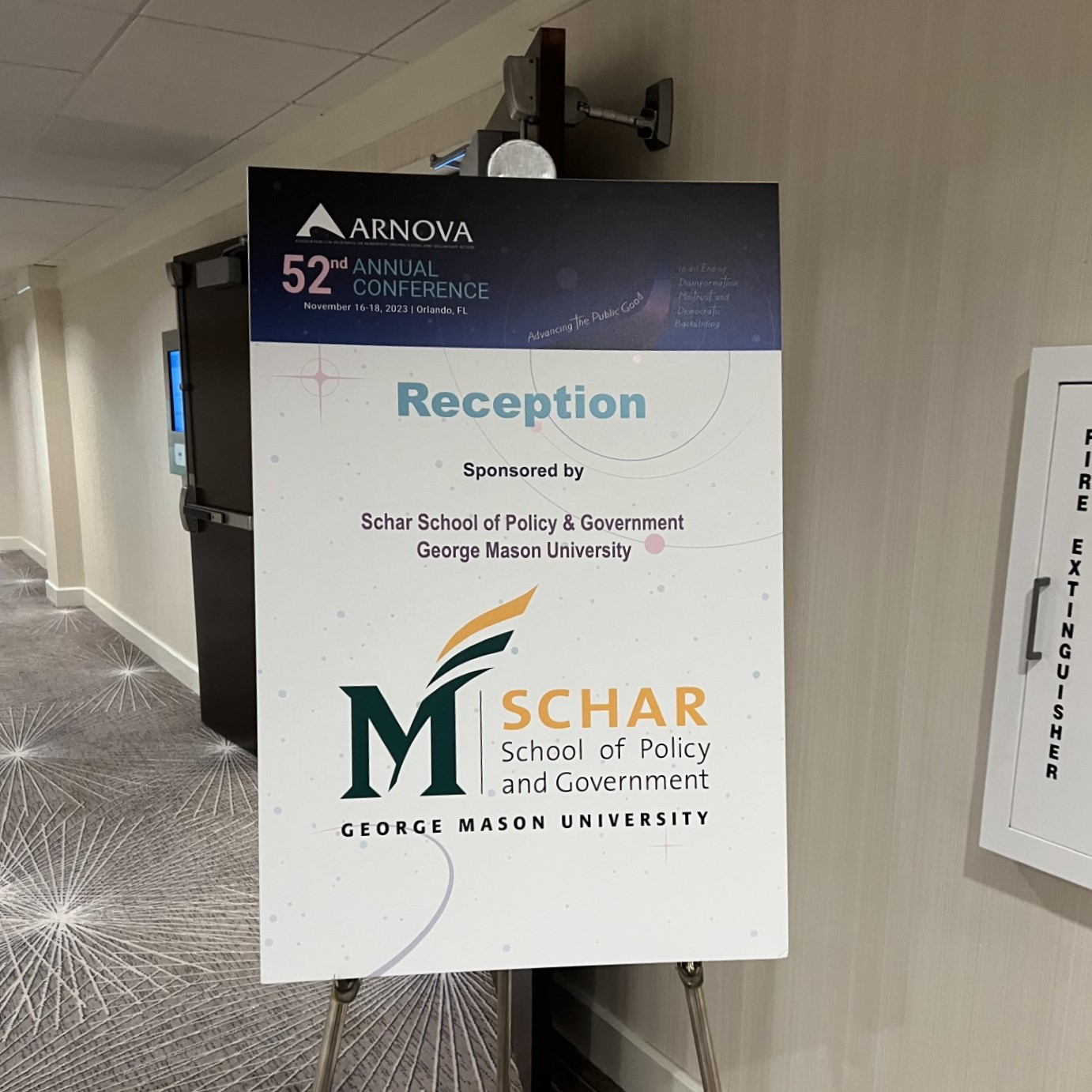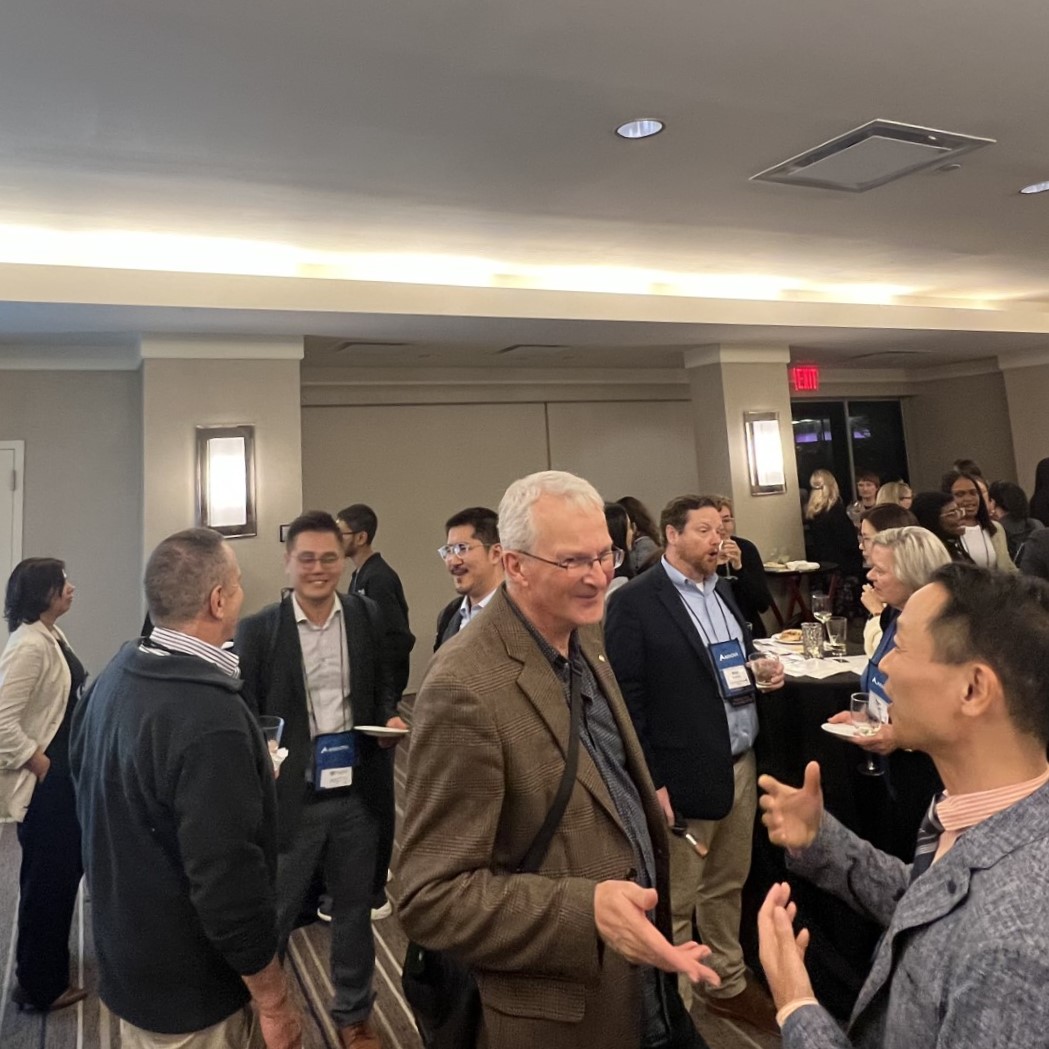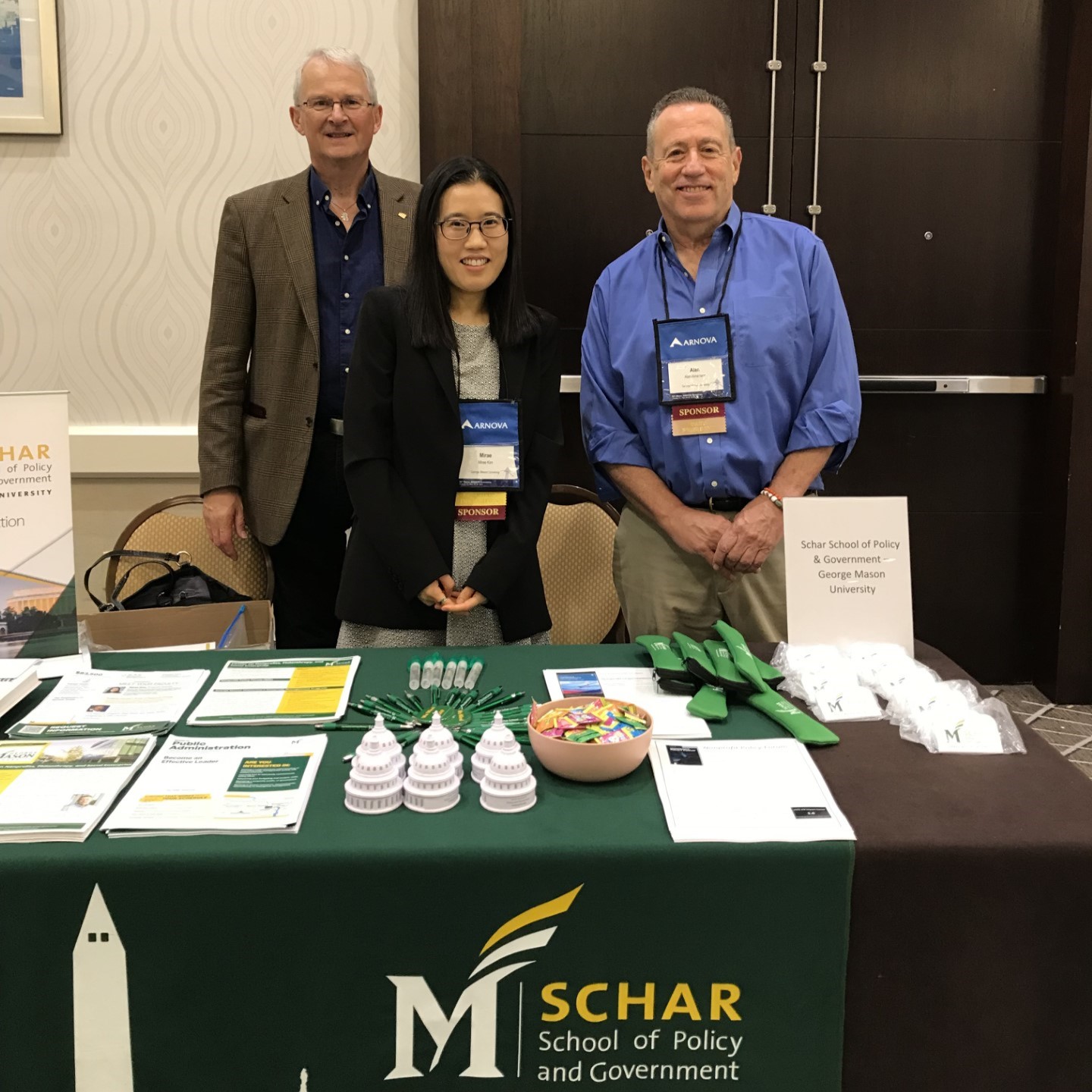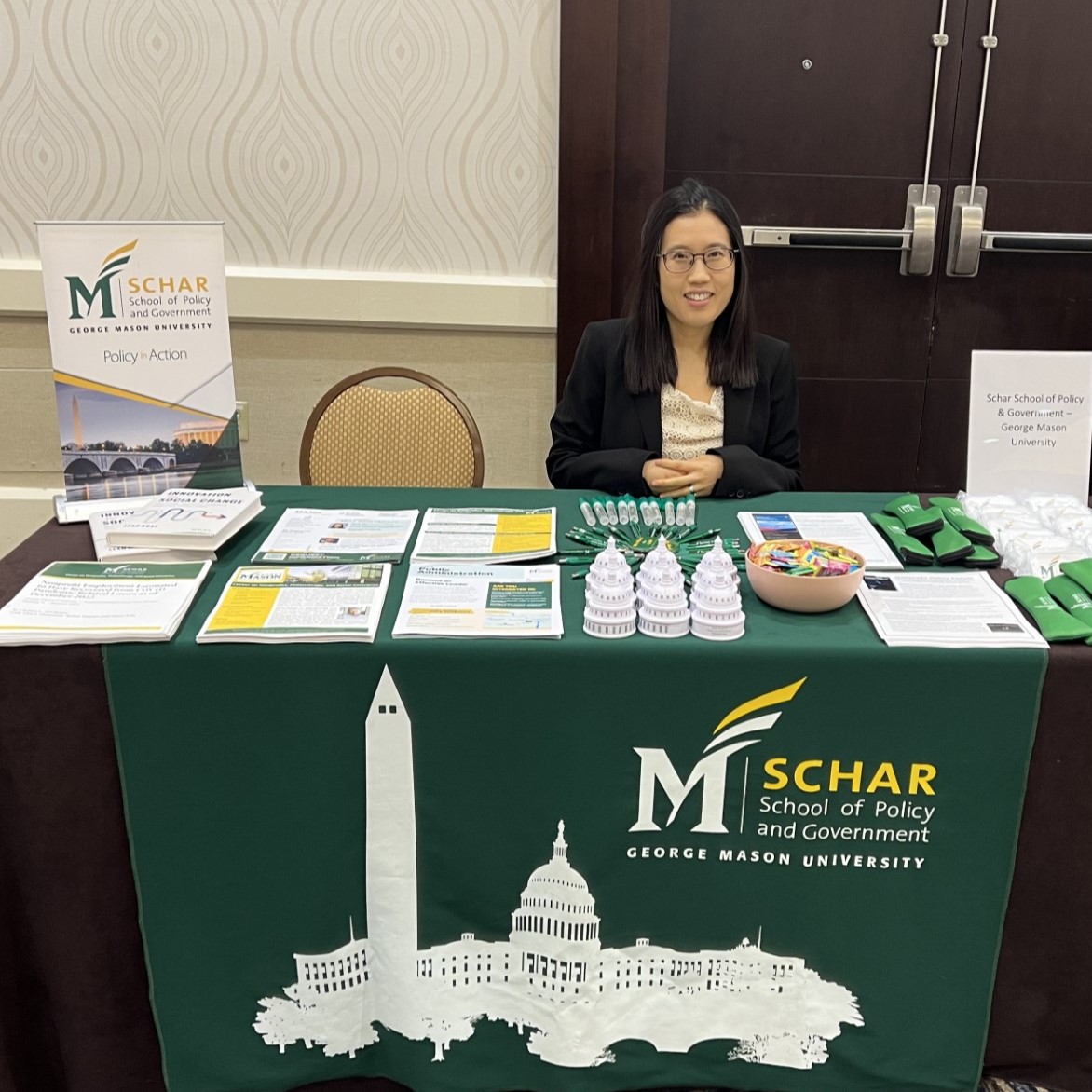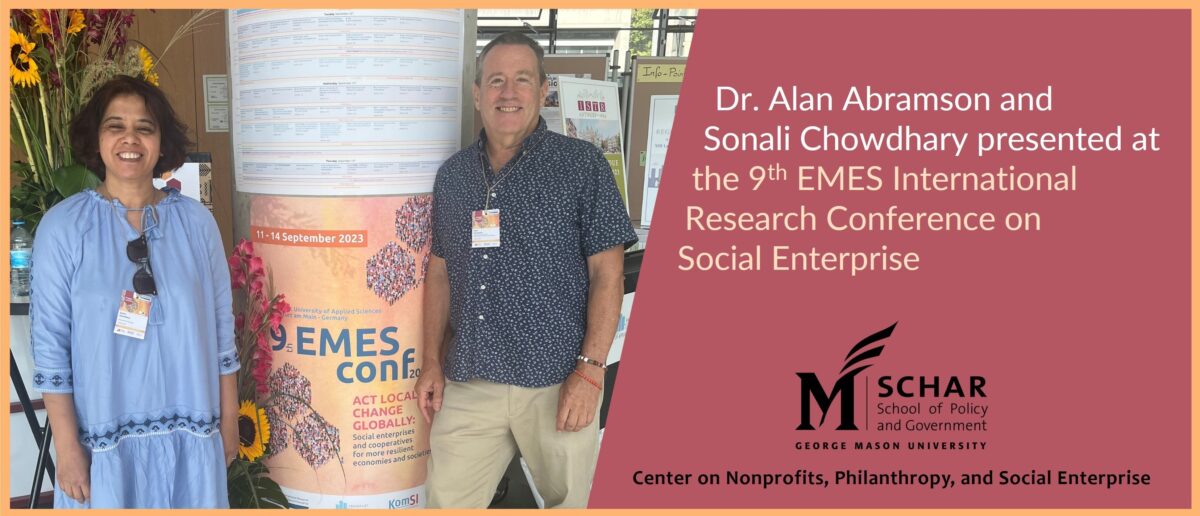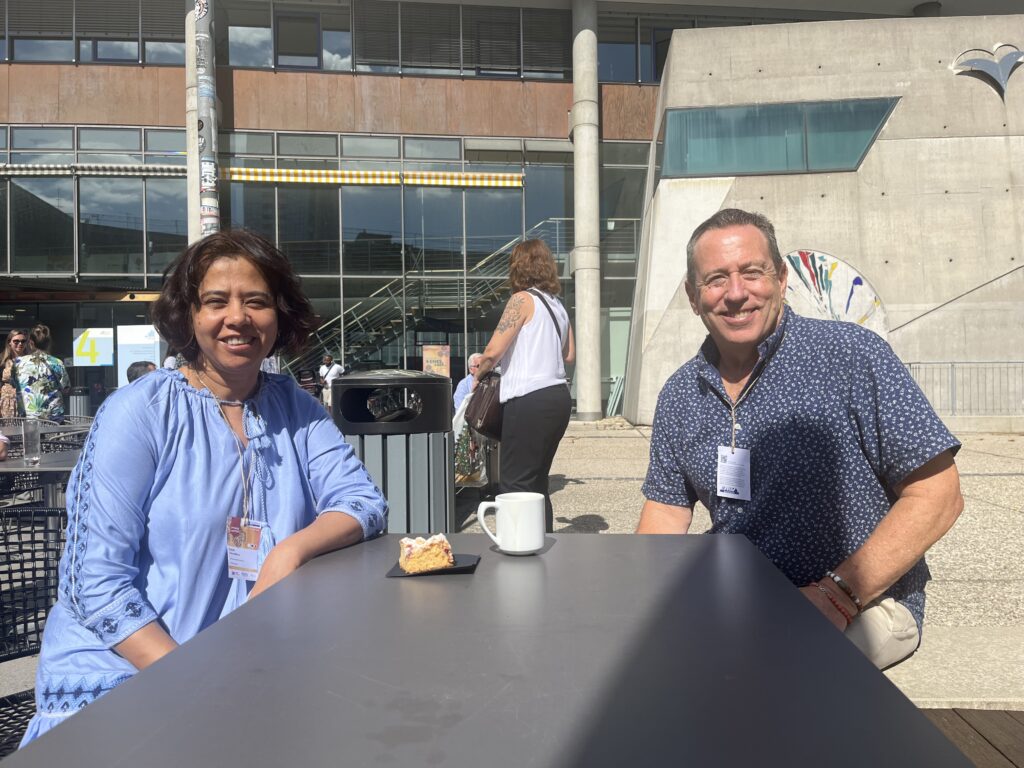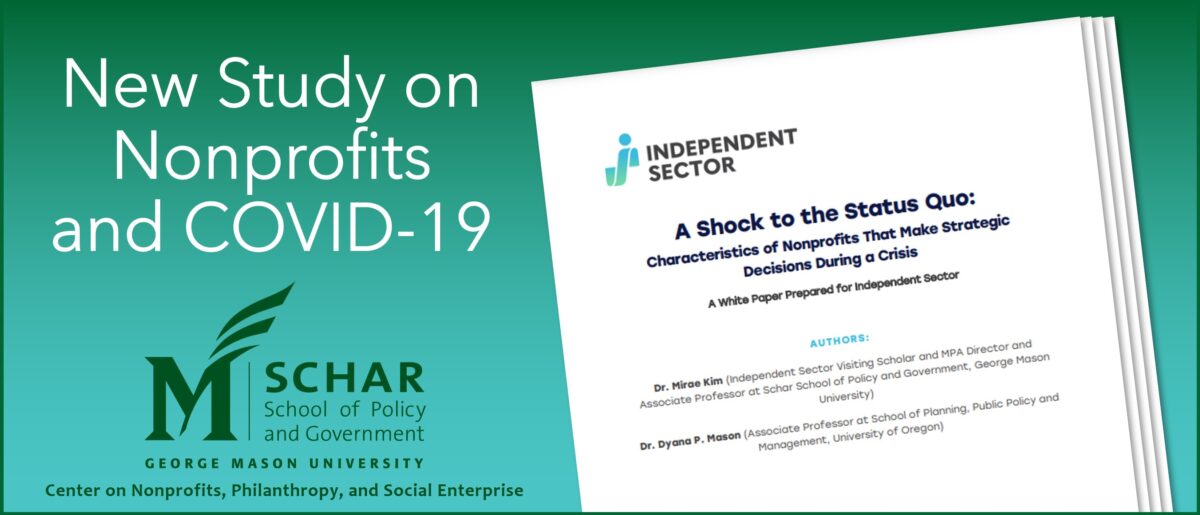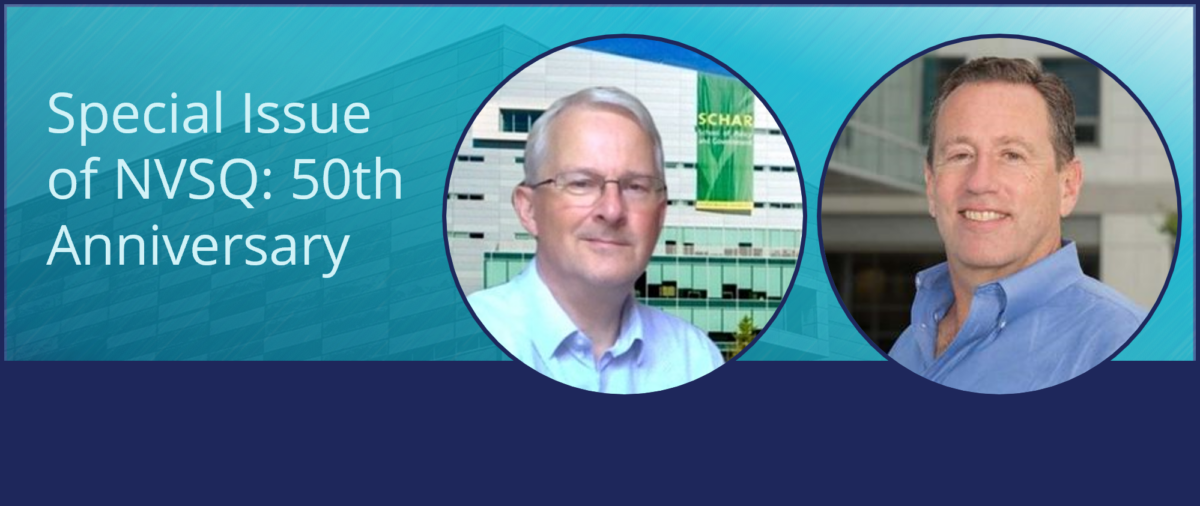
The DMV Nonprofit Research Day, hosted by the Schar School’s MPA program and the Center on Nonprofits, Philanthropy, and Social Enterprise, took place on April 5th at George Mason University’s Mason Square/Arlington campus. The event attracted many nonprofit scholars from the District of Columbia, Maryland, and Virginia (DMV) region, including well-known researchers Khaldoun AbouAssi (American University), Angela Bies (University of Maryland), Luisa Boyarski (Georgetown Unievrsity), Nathan Dietz (University of Maryland), Lewis Faulk (American University), Jasmine Johnson (George Washington University), , John Ronquillo (University of Maryland), Steven Rathgeb Smith (American Political Science Association and Georgetown University), Joannie Tremblay-Boire (University of Maryland), and Mary Tschirhart (George Washington University). Doctoral students from American University, George Mason University, and James Madison University also joined the meeting. The event was hosted by Schar School nonprofit faculty Mirae Kim, Stefan Toepler, and Alan Abramson.
The day began with networking over coffee, followed by a presentation by Mirae Kim and Joannie Tremblay-Boire discussing how changes in a nonprofit’s mission can be adaptive or concerning. The results from a survey administered by the Nonprofit Organization Research Panel, housed at George Mason, ignited an intense discussion among the attendees, providing constructive feedback for the presenters. Nathan Dietz delivered the second morning presentation, focusing on social connectedness and generosity. His talk spurred dialogue on the decline of volunteering in the US and the factors driving greater volunteerism in poorer neighborhoods, among other topics.
Boxed lunches were provided, allowing participants to choose any spot on campus for their meal. However, as Joannie Tremblay-Boire noted, most chose to remain in the meeting room to continue their discussions, emphasizing the value of the “company” over the “location,” and expressing her own enjoyment in engaging with fellow nonprofit researchers.
The afternoon sessions were packed with three presentations, starting with Kathryn Grossman (American University) and Khaldoun AbouAssi, who discussed trust between local government and nonprofit collaborators. Stefan Toepler then explored trends in nonprofit research topics, prompting a debate on whether the growth of nonprofit research in Public Administration journals has shifted the focus of the field. This discussion led to broader considerations of the interdisciplinary nature of nonprofit research and the optimal development path for the nonprofit research field. The event concluded with a presentation by Lewis Faulk on “Nonprofit Advocacy and Lobbying: A Call for Clarification and Action,” co-authored with Mirae Kim and others. The session sparked a lively debate on the evolving role of nonprofits in public policy and the importance of legal knowledge among nonprofit leaders.
In a concluding discussion, meeting participants expressed strong interest in continuing this regional meeting, perhaps convening once a semester at different local universities.
